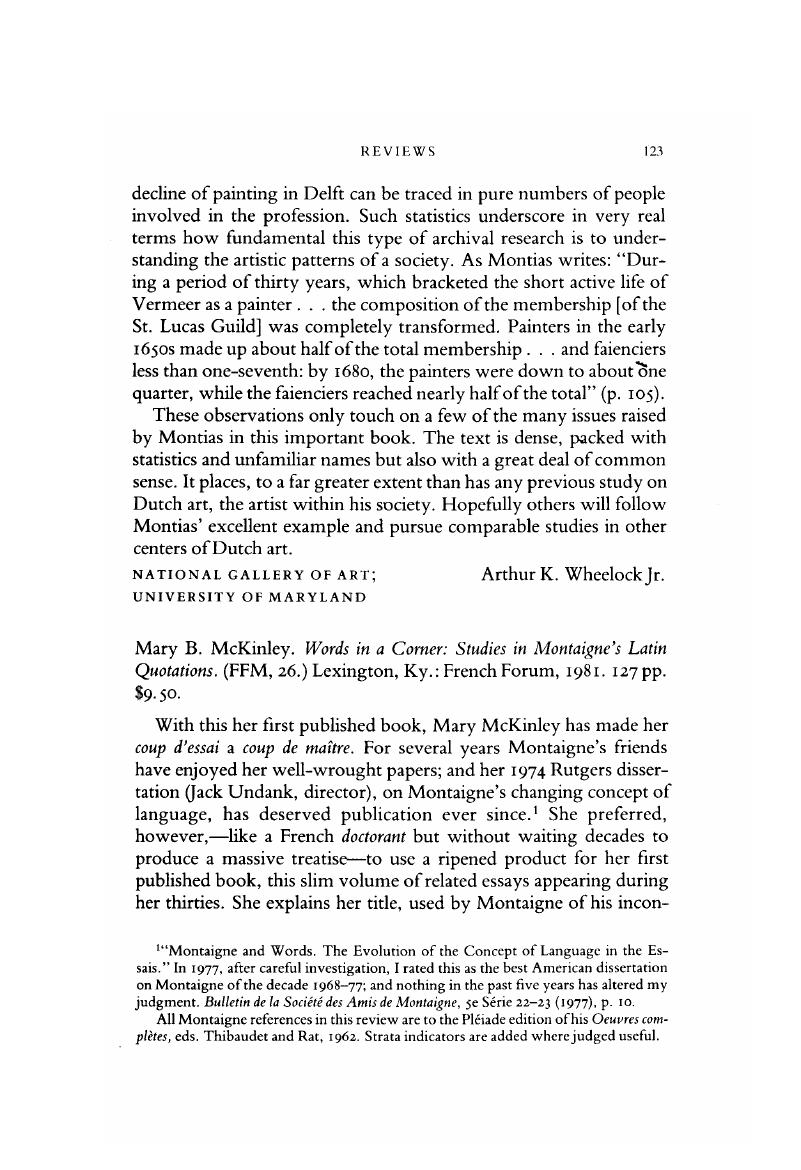No CrossRef data available.
Published online by Cambridge University Press: 20 November 2018

1 “Montaigne and Words. The Evolution of the Concept of Language in the Essais.” In 1977, after careful investigation, I rated this as the best American dissertation on Montaigne of the decade 1968-77; and nothing in the past five years has altered my judgment. Bulletin de la Société des Amis de Montaigne, 5e Série 22-23 ('977). P. 10.
All Montaigne references in this review are to the Pléiade edition of his Oeuvres complétes, eds. Thibaudet and Rat, 1962. Strata indicators are added where judged useful.
2 Mary McKinley finds similar (though not sexual) delaying tactics in the “Apologie” (II: 12), where Montaigne writes interminably, far beyond his wont, on this “long et ennuyeux discours,” even to uttering twice within six lines (II: 12, 588a) the telling phrase (and wishful thought?) “sans fin“; since for him, here too, “the last word represents a kind of death“:“The City of God and the City of Man: Limits of Language in Montaigne's ‘Apologie',” Romanic Review, 71 (1980), p. 139; cf. pp. 122-40.
3 “Un suffisant lecteur descouvre souvant es escrits d'autruy des perfections autres que celles que l'autheur y a mises et apperceues, et y preste des sens et des visages plus riches” (I: 24, 126a.).